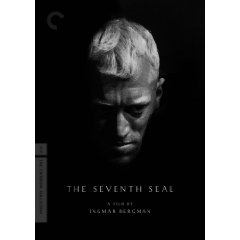
Starring: Christian Friedel
Director: Michael Haneke
When university film students are studying the career of Michael Haneke in 50 years (and they will be), it seems likely that The White Ribbon will be seen as the crest of his impressive career. However, the film represents a pinnacle in terms of reception, rather than execution. Certainly, it will be difficult for Haneke to duplicate this film in terms of hardware, having already garnered the Palme d'Or at Cannes and the trifecta of Best Film, Best Director, and Best Screenwriter at the European Film Awards, with Academy Award and Golden Globe nominations for Best Foreign Film promising the possibility of more accolades in the near future. This film is easy to praise, with its gripping and thoughtful examination of the foundations of fascism in a German village just before World War I, delivered through the lush austerity of Christian Berger's striking black-and-white cinematography. With time, however, the impetuous consensus which has agreed to herald Haneke as the cinematic master of this moment in film history will dissipate, revealing that The White Ribbon is frayed and blemished, though Haneke himself would likely agree that such defects can only increase the film's ability to intrigue.
The film opens with the voice of a narrator, who warns that the story he's about to tell may not be entirely true, an assessment which is manifested by the fact that the majority of the action happens behind the groaning doors and sturdy shutters of the village, meaning that no single character has access to all of the relevant events. An unknown perpetrator strikes at the moral heart of the Protestant village with a series of vicious pranks and brutal assaults, until the villagers' trust of one another is gradually eclipsed by suspicion. Having no other outlet for their fear and frustration, many of the villagers, particularly the town pastor, flex their authority by tightening the vice of discipline on their children, who in turn become the carriers of their parents' parasitic malice.
Haneke employs some ham-handed devices to reinforce his theme, including a prominent biblical quote and the metaphor of the film's title, which is nakedly explained in a central speech. At times, he resorts to scenes of benign banality which seem better suited to a television sitcom, as one young boy adopts a wounded bird while another innocently queries his older sister about the nature of death. It is unthinkable that Haneke intended to single-handedly decipher something as seminal as the rise of German fascism, but one of his central assertions is that people will often forego moral struggle in favor of simple reproach, and it seems likely that audiences will do the same as they digest and interpret The White Ribbon. In life, "this" never quite blossoms into "thus" -- the causes of complex events can never be truly elucidated, only endlessly examined. Haneke has made a noble effort in this direction, but in the end his attempt at lucidity inevitably draws us further from the essential nature of fascism, rather than nearer to it. (144 mins.)
My Rating: ***

No comments:
Post a Comment